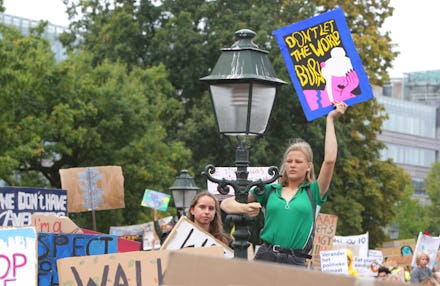What a Dutch climate change lawsuit could mean for the rest of the world

The fight against climate change isn't limited to protests in the streets alone. Numerous environmental groups have filed lawsuits against their respective country's governments and one just struck a major win. On Friday, the Netherlands' top court ordered government action on climate change, signaling a potential shift in how the issue is handled across the world.
This decision by the Supreme Court of the Netherlands is years in the making. In 2013, Urgenda, a Dutch environmental group, sued the government on behalf of 900 citizens. Two years later, the District Court of The Hague ruled that the government needed to cut emissions by at least 25 percent by 2020.
The date set by the lower court meant that the Netherlands would have to take immediate action on climate change. So, the government tried to repeal and failed multiple times. The decision was first upheld by the Court of Appeal and, now, the Supreme Court.
In the decision, chief justice Kees Streefkerk noted that because of climate change, "the lives, well being and living circumstances of many people around the world, including in the Netherlands, are being threatened. Some of those consequences are already happening."
"Today, at a moment when people around the world are in need of real hope that governments will act with urgency to address the climate crisis, the Dutch Supreme Court has delivered a groundbreaking decision that confirms that individual governments must do their fair share to reduce greenhouse gas emissions," Urgenda said, according to BuzzFeed News.
The Supreme Court's decision is notable for multiple reasons. To start, the New York Times reported that this is the first time a country has been required by its courts to take action against climate change.
What's really interesting is how the Supreme Court framed its decision as upholding the rights of the people. The court didn't go against this ruling "because of the risk of a dangerous climate change that can also seriously affect the residents of the Netherlands in their right to life and well-being."
In other words, climate change is a threat to human life, and the Supreme Court decided that people have a fundamental right to be protected from it.
The decision is being celebrated by climate activists across social media. Jennifer Morgan, executive director of Greenpeace International, tweeted, "This puts all laggard governments on notice: act now or see you in court."
Youth climate activists have already started taking governments to court. In 2015, a lawsuit filed on the behalf of 21 kids, Juliana v. United States, aimed to stop the U.S. from using fossil fuels. The plaintiffs wrote, "Our complaint asserts that [the government] has violated the youngest generation’s constitutional rights to life, liberty, and property, as well as failed to protect essential public trust resources." The lawsuit is still ongoing.
Then in September, Greta Thunberg and fifteen other activists filed a landmark lawsuit with the United Nations, alleging that five countries — Brazil, France, Germany, Argentina, and Turkey — knew about the dangers posed by climate change but did nothing.
You'll notice that the United States is missing from that list even though it's a major polluter. Although China is the largest emitter of carbon dioxide globally, the United States takes second place, according to Reuters. However, the lawsuit was filed with the UN's Committee on the Rights of the Child, and the U.S. doesn't accept their jurisdiction.
Given the recent failures of COP25, a U.N. conference on climate change, and the U.S.'s role in blocking progress there, it's clear that pressure needs to increase at home. The Netherlands prove that individual governments can be held responsible.